When my friend Franny suggested a 4-day motorbike loop in central Laos, I didn’t give it much thought. She was living in Thailand, and I trusted her local knowledge of what we should see and do in the Mekong region. Victor and I had loved zipping around on our rented motorbike on the country roads of Chiang Dao and Ko Samui during our honeymoon in Thailand two years ago. If this was the trip she selected, I was all in.
Or was I?
As the trip neared, Victor asked me if Franny and her boyfriend were each planning on renting bikes. That is, was I planning to drive my own? I’ve had a few crashes on regular bicycles in my life, and was wary of my driving skills safely sustaining me for four days, but in my head I figured I’d just learn on the job like I had with stick shift in South Africa.
When we arrived, I took a deep breath, donned my helmet, and took my rental for a semi-confident spin around the lot as a practice run. While my first and second turns were a success, on the third the bike skidded out and I crashed to the ground. My leg swelled with deep blue bruises and bloody scrapes streaked my arm from the loose gravel.

When my crying and initial shock subsided and my wounds were cleaned, the ego in me tried to convince the timid, scraped up rest to get back on my horse and zip out of the rental lot onto our 4-day adventure. However, Victor looked at me seriously and asked, “do you even want to drive?” Victor’s question of desire really gave me pause. Had I ever dreamed of motor-biking around Laos? Did the idea of driving excite me? Did I think I had something to gain or learn from driving my own bike?
I have faced other fears in my life voluntarily. I have bungee-jumped off Victoria Falls (hated it), and I’ve cliff-jumped into Lake Superior (loved it!). I have gone backpacking by myself in the Rockies and weathered a thunderstorm while setting up camp. In those moments, I felt fear, but my yearning for something—exhilaration, solitude, independence—won out.
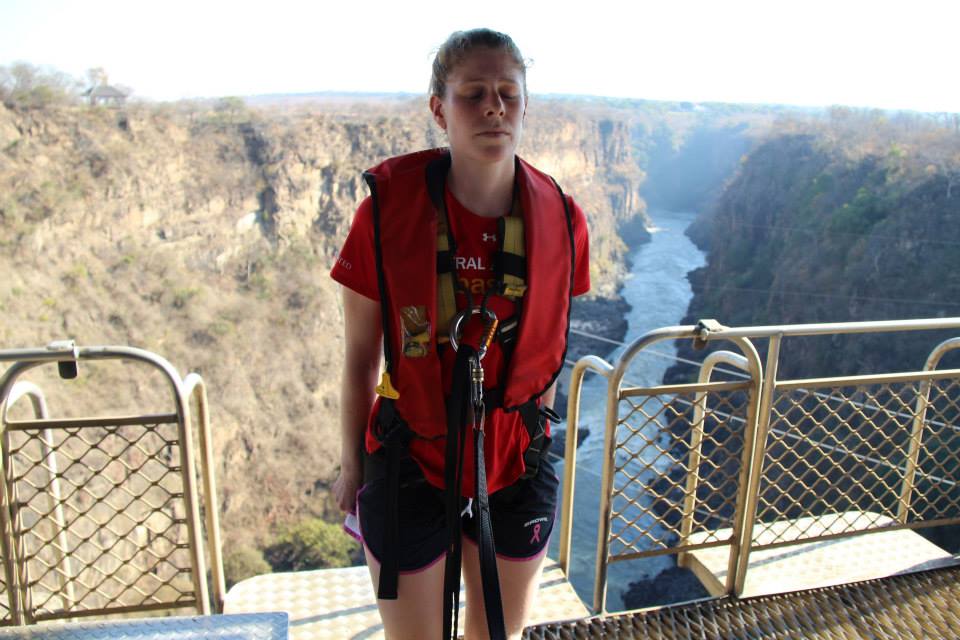
Gathering my courage before bungee jumping. 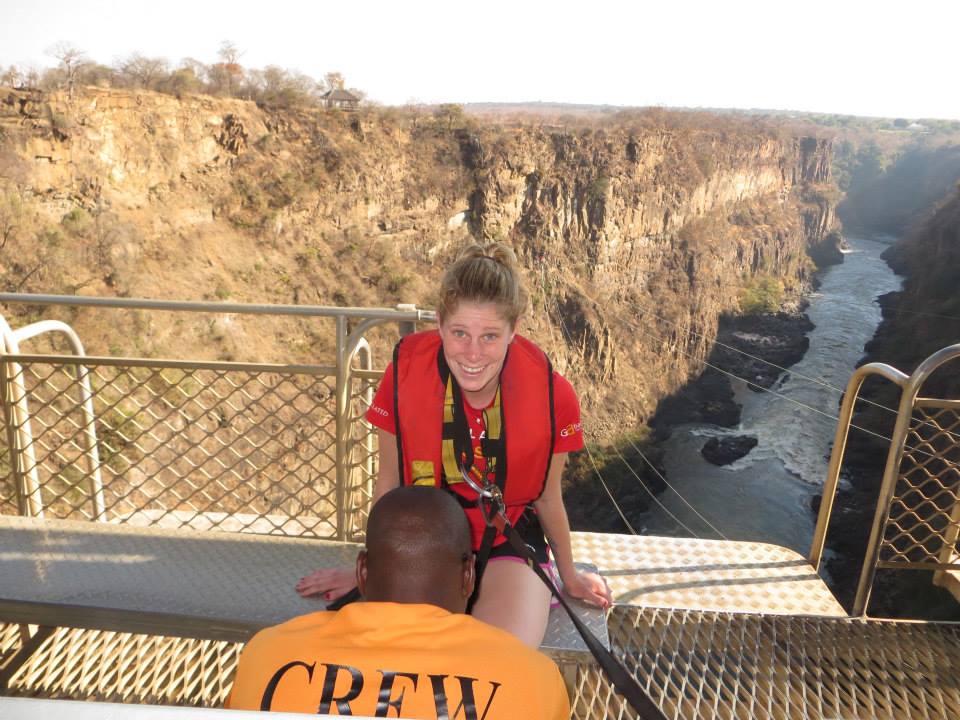
Petrified.
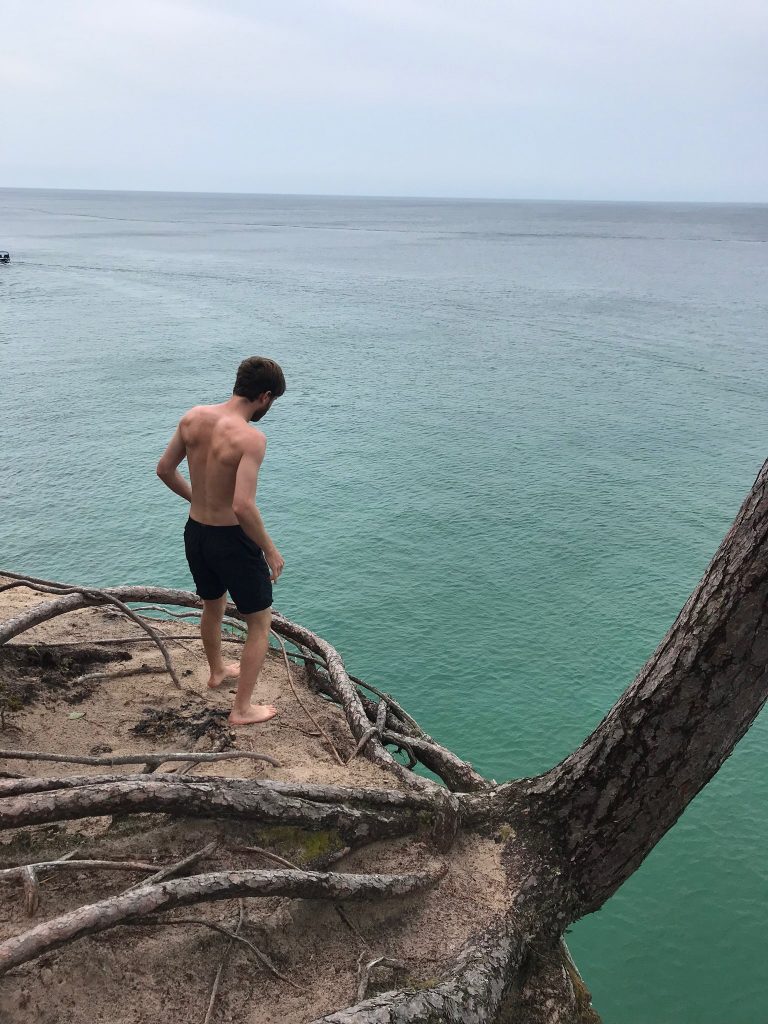
My buddy Jake scoping out our cliff jumping spot in Michigan 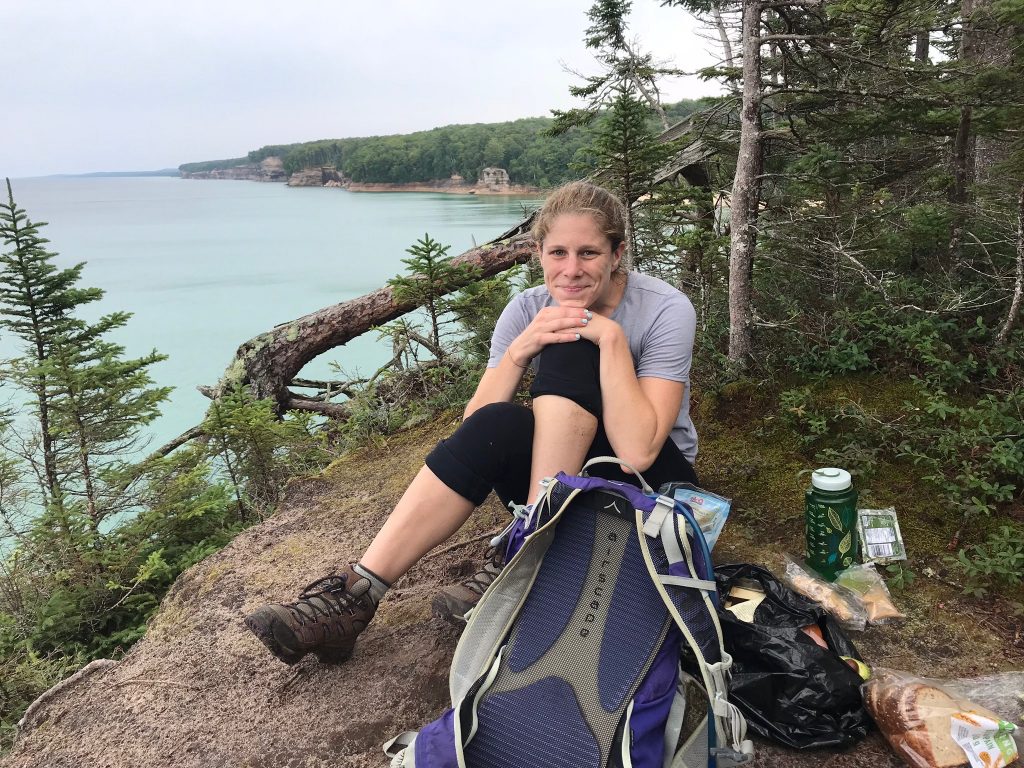
Satisfaction! A risk worth taking!
As our friends waited to set off on the Loop, I wondered, would I be submitting to my fear if I rode on the back of Victor’s bike for 4 days instead of driving myself? Did that defy my feminist instincts and quest for self-sufficiency?
I decided the answer to all these questions was, no. I had no yearning to drive a motorbike, so I wasn’t going to take the risk of re-injury in a quest for some noble sense of redemption.
Throughout the quiet hours on the back of Victor’s moto, as I licked my physical and emotional wounds, I reflected on when, why, and how we should face our fears.
WHEN?
It is difficult to know whether we will grow by making a jump that terrifies us, or whether it will simply be unpleasant, and we should heed our fear as a survival warning. As children, I think it is good to face fears more often than not in order to test your limits and interests. Failure and injury get incorporated into children’s mental schema, and they are resilient enough to handle physical and emotional risks. Plus, adolescent brains crave this kind of boundary testing! Perhaps my realization that there are some risks I don’t want to take marks a departure from adolescence for me. As we age, I think it’s important to hear our inner voice as clearly as possible and use those lessons of childhood boundary testing to determine which risks feel worthy. However, we must also continue to push towards our terra incognita, and identify when there might be something worth seeing on the other side of fear. Certainly our bodies become less resilient, and the responsibilities that hold us back from risks grow, but we must continue to confront some fears—just enough to stay on the cutting edge of self-improvement and exploration. Consider: when was the last real risk you took?
WHY?
In a way, the decision to quit my job and take this trip was a confronting of fear. There were things I wanted that I wasn’t getting in New York or in my job, but I had no idea what looking for a new career path would entail, and was afraid of that leap. So, I guess one reason to face a fear is if there are things you want or needs you have that remain unsatisfied. If there’s something on the other side that you want to see or feel, it way be worth taking a big breath and a big leap.
HOW?
I recently encountered the following passage in the fantasy/scifi book, Dune, by Frank Herbert. The book describes a clan of people who are known for their wisdom and keen powers of observation. When people of this tribe (highly trained in mental control) encounter fear, they repeat the following mantra, and internalize its message: “I must not fear. Fear is the mind killer…I will face my fear. I will permit it to pass over me and through me. And when it has gone past I will turn the inner eye to see its path. Where the fear has gone there will be nothing. Only I will remain.” This passage reminded me of a practice in meditation, to allow the thoughts we normally cling to to instead pass like clouds through our field of vision. This practice allows us to gain control of breath and our response to stimuli. This, to me, feels like a healthy and helpful way to approach a moment of fear (that is, non-calamitous moments of fear when you have the time for consideration). I used this practice late at night recently, when camped in a tree house deep in the Bokeo jungle in Laos. I wanted to go to the bathroom, but I knew there were spiders the size of my stretched hand lurking on the ceiling, and a 6 foot long snake had visited the house twice that day. I practiced this “litany,” and slowed my breathing. Raw facts and rationality overcame my pulsing heart: spiders hadn’t dropped onto my mosquito net in the night; they weren’t interested in attacking me. I watched my fear pass through my mind’s eye, and what remained was simply me. And I had to pee! While I decided to pass up confronting the motor-bike fear, I am expecting many other moments of stretch as we continue our journey, and I hope to try out this tactic to overcome some of them.
Please comment with any methods you use to determine whether a fear is worth confronting or not, and, if so, how to tackle it!

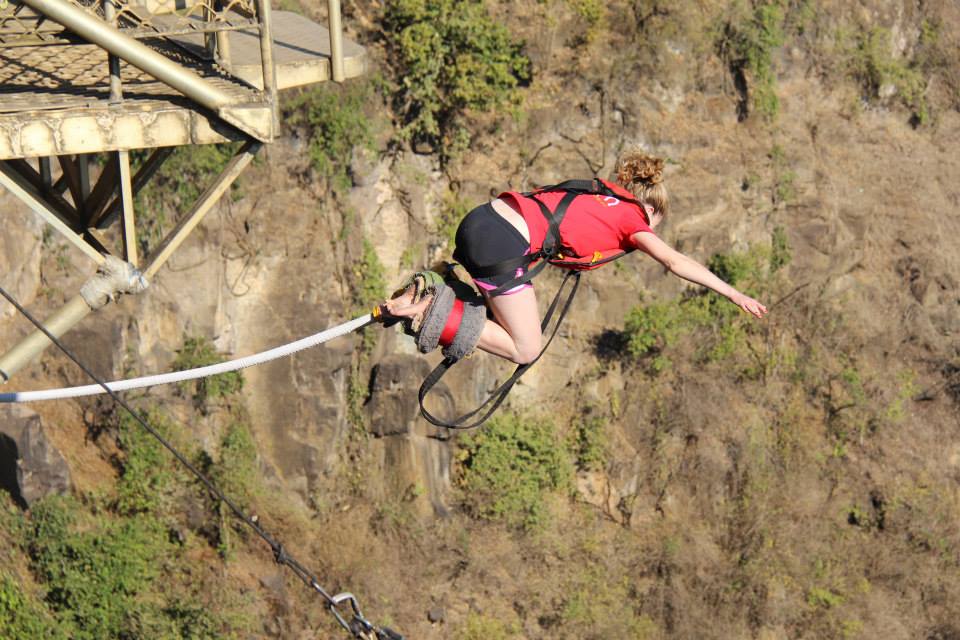

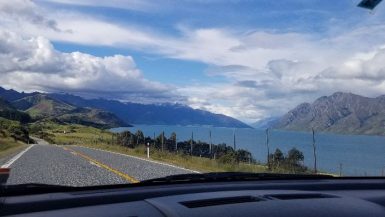

Leave a reply